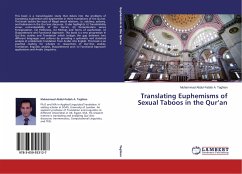The works of Andrei Platonov embody the dialectic of his era. They deal with the major elements which defined and dictated Soviet life and literature in the 1920s and 1930s. The legacy of the Stalinist period is deeply implicated in contemporary Russian society, where larger patterns of cultural adjustment are still in play. There is revived interest, therefore, both in Russia and the West, in re-evaluating this complex time and author. This book is particularly concerned with providing an examination of the nature and use of irony in the works of Platonov in relation to idealism, as it would be difficult to find in any of his writings an instance of irony that is not, in some way, connected with Soviet idealism. The opposition idealism as irony/irony as idealism describes Platonov's ironic approach to idealism, and his employment of a dichotomic style in order to convey his dialectical way of thinking.
Bitte wählen Sie Ihr Anliegen aus.
Rechnungen
Retourenschein anfordern
Bestellstatus
Storno








